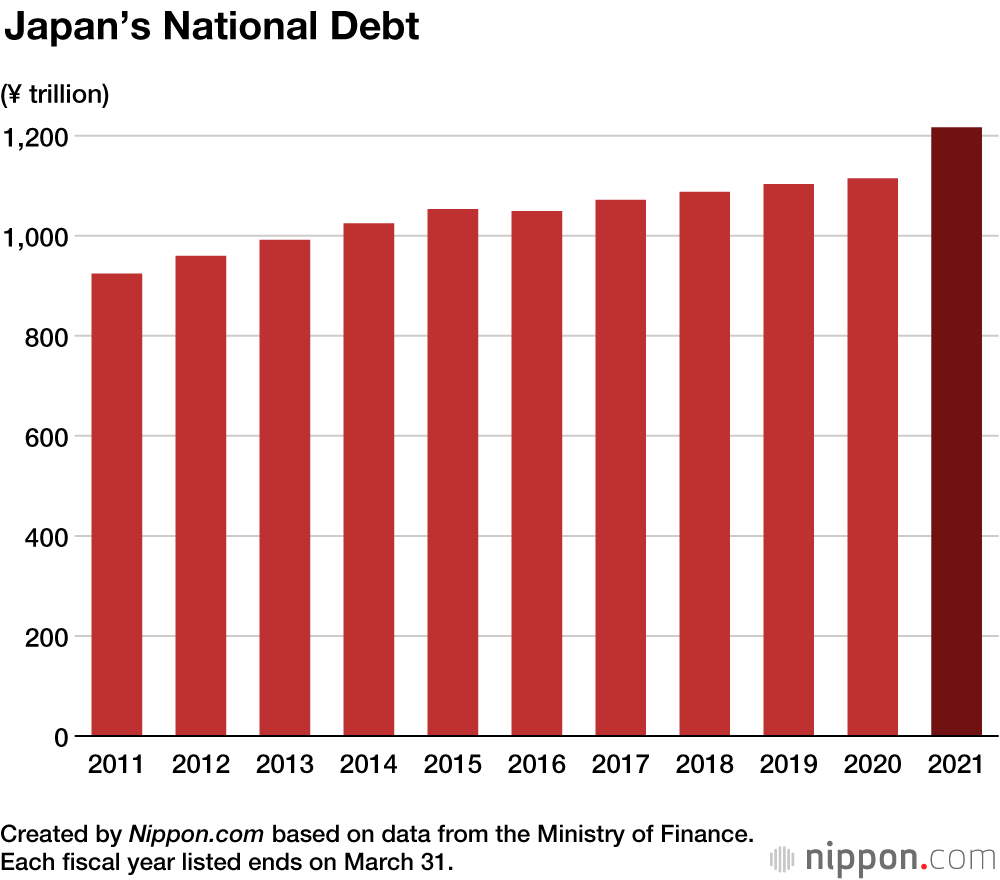
Japan’s Debt Reaches ¥1.2 Quadrillion
Politics Economy Society- English
- 日本語
- 简体字
- 繁體字
- Français
- Español
- العربية
- Русский
As of March 31, 2021, Japan’s national debt, which is the sum of the outstanding balance of government bonds, loans, and financing bills, stood at ¥1,216 trillion. In fiscal 2020, the government prepared three large supplementary budgets and issued a large amount of additional bonds in response to the pandemic, increasing the debt by ¥102 trillion compared to March 31, 2020, in the largest single-year increase ever.
Based on an estimated Japanese population of 123.2 million (as of November 1, 2020), per-capita debt for everyone from newborns to centenarians in Japan could be calculated as ¥9.9 million.
The issuance of government bonds, which account for the bulk of the debt, increased by ¥87 trillion to ¥1,074 trillion. In particular, short-term government bonds with a maturity of one year or less increased by around ¥49 trillion during that same period.
Debt is likely to continue to accumulate in the fiscal 2021 budget with ¥43.6 trillion in new bonds scheduled to be issued.
(Translated from Japanese. Banner photo © Pixta.)
